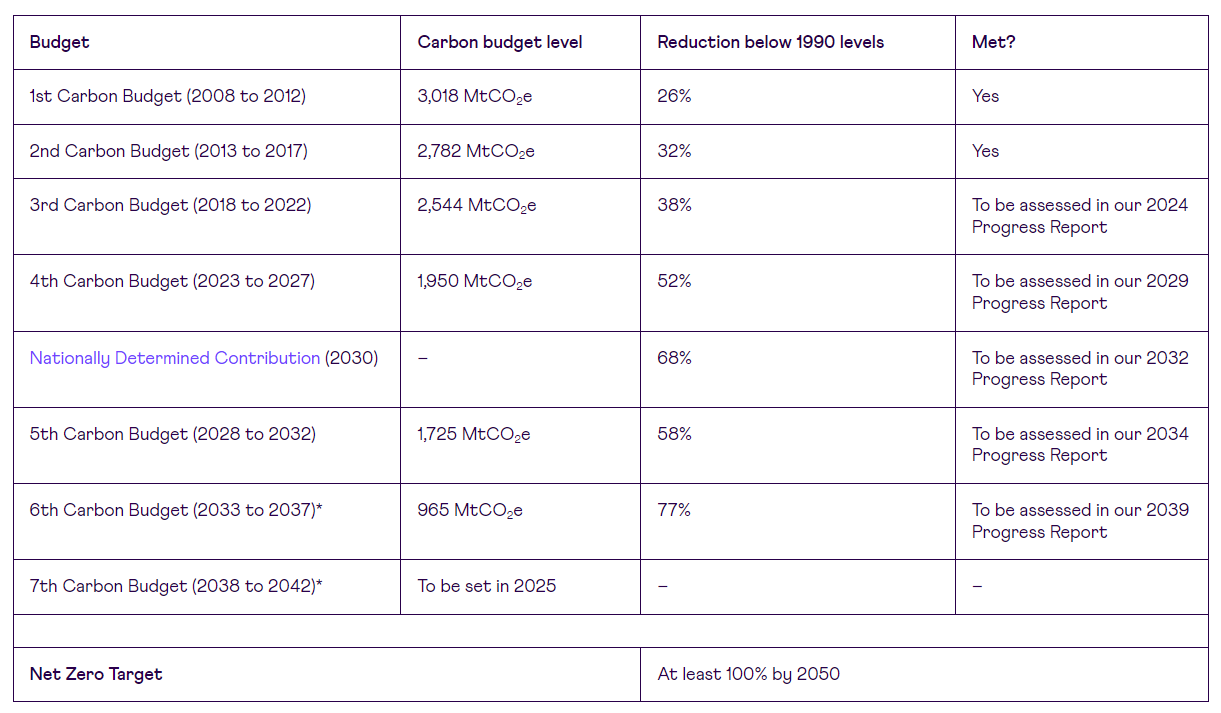Exploring the Growing Demand for Hydrogen Renewable Energy Talent
01 Aug, 202310 minSourcing hydrogen renewable energy talent has never been more sought after by companies with...

Sourcing hydrogen renewable energy talent has never been more sought after by companies within this space. With the impending need to act on the climate crisis, decarbonise our future and reach net zero, the industry begs for professionals who can drive change. But what investment has there been to tackle this problem, and how do businesses fill their vacancies and meet their hydrogen recruitment goals in a competitive sector with a growing demand for hydro-renewable energy talent?
In this guide, we’ll explore why there is a growing demand for hydrogen-renewable energy talent, the investment within the UK hydrogen sector, and the solutions organisations can utilise to source hydro-renewable energy talent in a competitive market and fill their vacant hydrogen jobs.
Why the growing demand for hydrogen renewable energy talent?
There are various reasons why there is a growing demand for hydrogen renewable energy talent. From the UK being legally obliged to hit clean energy targets and the fact that hydrogen can decarbonise our future to hydrogen energy jobs having the potential to power the energy transition, let’s explore some of these factors and answer the question of why there is a growing demand for hydrogen renewable energy talent?
The UK is legally obligated to reach net zero by 2050
In 2019, after amends were made to The Climate Change Act 2008, the UK government was legally obligated to reach net zero by 2050. This means that by 2050, the UK must reduce its greenhouse gas emissions by 100% from the levels recorded in 1990.
As part of this strategy to meet these legal targets, the UK Parliament Mission Zero: Independent review of net zero outlines 129 recommendations to support the UK in securing affordable net zero investments. One of these recommendations involves developing hydrogen renewable energy infrastructure to support the green economy.
Additionally, the UK has set out a series of carbon budgets whereby they must cut emissions by 78% below 1990 levels by 2035 to reach the target of 100% by 2050. As you can see from the table below, from the Climate Change Committee, the UK is currently falling behind these targets.

Source: The Climate Change Committee
Of course, part of why the UK has fallen behind on its net zero targets can be put to the pandemic, the war in Ukraine, and resistance from industries that don’t see monetary value in renewable energy solutions. However, another key reason is the lack of talent within the sector, including for hydrogen jobs.
We’ll discuss the potential solutions to this talent shortage within the hydrogen renewable energy space. However, for now, it’s no doubt one of the reasons why there is a growing demand for hydro-renewable energy professionals is because the government is eager to find the people who can help deliver hydrogen-based projects to ensure the UK meets its legal obligations of net zero by 2050.
Hydrogen renewable energy can decarbonise our future
Another reason there is a growing demand for hydrogen renewable energy talent is that the world is working to reduce greenhouse gas emissions and turning to hydrogen as a key technology for decarbonising the energy sector.
According to McKinsey, hydrogen has the potential to decarbonise our future and contribute to over 20% of annual emission reductions worldwide by powering homes, businesses and vehicles without the reliance on fossil fuels. Industries that are typically difficult to decarbonise, such as transport, aviation, chemical, glass, iron, and steel, can all benefit from the versatility of hydrogen renewable energy.
With steel, for example, 52 global hydrogen-based steelmaking projects have been announced, many of which are being developed in Europe, with the potential for hydrogen to reduce emissions by 20% in 2030. McKinsey adds that industry and transportation can benefit the most from hydro-renewable energy, potentially reducing 80GT of carbon dioxide by 2050.
According to CSIRO HyResource, over 680 large-scale hydrogen projects were put forward in 2022 to support the decarbonisation of the planet, representing a staggering total investment potential of up to $240 billion by 2030.
The production of these 680+ projects is proposed to be developed in the following parts of the world:
- Europe 314
- Asia and China 154
- North America 103
- Oceania 54
- Middle East and Africa 34
- Latin America 25
However, out of this substantial number of proposals, merely 10% have advanced to the final investment stage. Among these projects, 530 have set their sights on partial or complete commissioning before the decade's end, while the remaining 170 are still in the preliminary stages of design or feasibility assessment.
The use of hydrogen to decarbonise the planet is still in its early stages, but there is a growing body of evidence that it has the potential to play a significant role in the future. However, the global estimated investment of $460 billion by 2030 is still needed across the hydrogen renewable energy value chain to support these decarbonisation efforts and a growing demand for talent to help bring these projects to life.
Hydrogen energy jobs can power the energy transition
One final reason why there is a growing demand for hydrogen renewable energy talent is that hydrogen jobs can play a significant part in powering the world through the energy transition, replacing our dependencies on fossil fuels with renewable energy solutions like clean hydrogen.
Various sources predict the hydrogen economy has the potential to cater to 18% of the global energy demand, with a $2.5 trillion annual revenue that would result in 30 million hydrogen jobs by 2050. The North Sea Transition Deal (NSTD) Integrated People and Skills Strategy also estimates 211,000 offshore workers, many of which will be needed to fill hydrogen energy jobs, will be required to support the energy transition by 2030.
We’ve discussed some of the major reasons surrounding the growing demand for hydrogen renewable energy talent, but where is the evidence to suggest the opportunities and the people to fill these proposed hydrogen jobs are being invested in?
£9bn investment could unlock 100,000 new hydrogen energy jobs
The UK is an excellent example of its commitment to the energy transition and supplying the renewable energy sector with hydrogen jobs to support its drive to net zero by 2050. In August 2021, the UK government announced plans to attract a £4 billion investment by 2030 to support the hydrogen economy.
Over 9,000 hydrogen energy jobs are proposed to be created due to this investment, and the UK's hydrogen economy could be worth £900 million by the end of the decade. In terms of the investment's impact on the UK population, the plans have the potential to generate enough hydrogen to power heating and cooking equipment for around 3 million UK households, replacing traditional fossil fuels.
When plans were laid out for this investment, the government aimed to generate 5 gigawatts of hydrogen by 2030. However, new targets have also been proposed to see hydrogen renewable energy production double to 10 gigawatts sourced from 50% green hydrogen and 50% blue hydrogen. Labour leader Sir Keir Starmer said he would back these targets if his party succeeds in the next election in January 2025.
According to the UK government's Hydrogen Sector Development Action Plan, with analysis from the British Energy Security Strategy, investment in hydrogen production alone could result in over £9 billion of private sector co-investment and support over 12,000 hydrogen energy jobs by 2030.
By 2050, the multi-billion investment could see the hydrogen economy reach £13 billion, account for up to 35% of the UK's energy consumption and create a further 100,000 hydrogen energy jobs as the UK bids to achieve its legally obligated net-zero targets.
Of course, this is a positive step in the right direction for the energy transition, but what does this mean for businesses within the hydrogen space, and where is the talent to fill these proposed hydrogen energy jobs?
Sourcing hydro-renewable energy talent in a competitive market
As discussed, there is a growing demand for hydrogen renewable energy talent, and investments are being put in place to support the growth of the hydrogen economy. However, we appreciate that talent to fill hydrogen energy jobs is hard to find, and the market has never been more competitive.
From focusing on professionals with transferable skills, inspiring the next-gen of hydro-renewable energy talent and more focus on diversity and inclusion, in this section, we'll explore the two biggest areas where hydrogen-renewable energy talent can be sourced.
Hydrogen recruitment will focus on transferable skills
One of the most significant steps to supporting the supply chain with the growing demand for hydrogen renewable energy professionals will be for hydrogen recruitment efforts to shift their focus on finding talent with transferable skills. This could mean sourcing talent already within the energy space and creating more cross-industry careers.
Robert Gordon University (RGU), Aberdeen, has already revealed in their UK Offshore Energy Workforce Transferability Review that more than 90% of the UK’s oil and gas workforce are equipped with the medium to high-level skills that are transferable to other energy sectors, including hydrogen and renewable energy. Their review also refers to the over 200,000 offshore workers needed by 2030, including hydrogen jobs, which we mentioned earlier in this piece.
RGU states that around 100,000 of these jobs will likely be filled by transferring oil and gas workers over to offshore renewable roles. Additionally, 80% of these roles will be divided into the nine areas listed below.
- Operations
- Technicians
- Engineering
- Projects
- Commercial/Business Development/Marketing
- Procurement/ Supply chain management
- Finance
- HR
- Health, Safety, Sustainability and Environment (HSSE)
Additionally, the Hydrogen Sector Development Action Plan revealed that the UK already has more than 120,000 certified gas engineers with the skills to transfer into roles for servicing hydrogen equipment and boilers. Other sources also report that between 1,000 - 2,000 professionals in the UK have very specific transferable skills that will cater to the rise in hydrogen energy jobs.
Ultimately, sourcing talent with transferable skills is a smart move for businesses looking to fill their vacant hydrogen jobs. Although professionals from areas such as oil and gas may have the transferable skills necessary, they may require additional reskilling and upskilling. Read our guide on Reskilling Talent for Hydrogen Renewable Energy Jobs to learn more about these solutions.
We must inspire the next-gen of hydro-renewable energy talent
Although sourcing talent from other sectors is an excellent solution to meeting the growing demand for hydrogen renewable energy talent, this can’t be a solution we can rely upon long term. Therefore, another step to solving the talent shortage within the hydrogen industry is to inspire the next generation of hydro-renewable energy talent.
The Department for Education's Sustainability and Climate Change Strategy has extended its support for the need to inspire the next generation of talent to fill the hydrogen jobs of the future. They propose to harness the passion and interest young people in the education system have towards climate change and sustainability, encouraging them to develop their knowledge and skills in key subjects, including STEM, to further enhance their ability to transition into renewable energy careers.
Some of the apprenticeships, training and other development opportunities in hydro-renewable energy that can help inspire the next generation include.
- Engineering Construction Industry Training Board (ECITB)
- Green Jobs Delivery Group
- The National Energy Skills Accelerator (NESA)
- All-Energy Apprenticeship (AEA)
- North Sea Transition Deal Integrated People and Skills Strategy
We explore these opportunities in more detail in our guide on Reskilling Talent for Hydrogen Renewable Energy Jobs, which we’ve linked to in our previous point.
Further adding to this, the Hydrogen Sector Development Action Plan states that by 2030 the government will co-host an International Green Skills Conference with higher and further education sectors. This conference will exhibit the top education opportunities and green skills the UK has to offer to eager candidates looking to kickstart a career in hydrogen-renewable energy.
Finally, as the Green Jobs Taskforce states, we must ensure ‘green jobs are open to all’ and encourage people with various disabilities, sexual orientations, cultures, political and religious beliefs and socioeconomic backgrounds to further help inspire the next generation of talent in the hydrogen-renewable energy space.
Final Thoughts
Overall it’s clear there is a growing demand for hydrogen-renewable energy talent to support key talking points, including the UK’s push to hit its legal obligations surrounding net zero, how clean hydrogen can help decarbonise our future, and how hydrogen jobs can help drive the energy transition.
Investments, like those in the UK, are solid steps to supporting the drive for hydrogen-renewable energy solutions. However, the difficulty still lies in finding the talent to help develop and breathe life into the hydrogen-based projects behind these investments.
Solutions such as finding talent with transferable skills and inspiring the next generation of renewable energy careers should be considered positive steps to filling the growing vacancies of hydrogen jobs and meeting the demand for hydrogen renewable energy talent. However, these solutions rely on businesses being open to tapping into this talent that have the potential to power the energy transition, which we can support with.
Looking for expertise in hydrogen recruitment?
We have been at the forefront of the renewable energy sector for over 20 years. Through global partnerships with our esteemed clients, we offer comprehensive workforce solutions, spanning talent acquisition to project management. We take immense pride in being a leading provider of sustainable solutions, including hydrogen-renewable energy.
Our experts are deeply committed to the renewable energy transition and are equipped with a profound knowledge of its current forecasts and future projections. With a vast international network of skilled professionals and in-depth local market expertise, we excel at identifying the perfect individuals for your project.
If you're a fast-growing innovator within the hydrogen renewable energy sector seeking a reliable partner to help you achieve your renewable energy aspirations, contact us today. Let's discuss your hydrogen recruitment needs and explore how we can collaborate to ensure your success in the renewable energy industry.









